Whenever a new supplement hits the spotlight, excitement and confusion tend to follow in equal measure. One day, it’s hailed as the secret to long life, and the next, someone’s dismissing it as a passing fad. That’s exactly what’s happened with NMN (nicotinamide mononucleotide).
If you’ve read about anti-ageing research or supplements that boost energy at the cellular level, chances are you’ve come across NMN. Some people are calling it the “fountain of youth in a pill.” Others warn it’s untested and potentially unsafe. And then there are those who think eating a mountain of broccoli is the same as taking a capsule.
So, what’s really going on here? Are the bold claims merely clever marketing, or are they backed by real science? And which of the myths floating around are worth ignoring?
Why NMN Has Everyone Talking
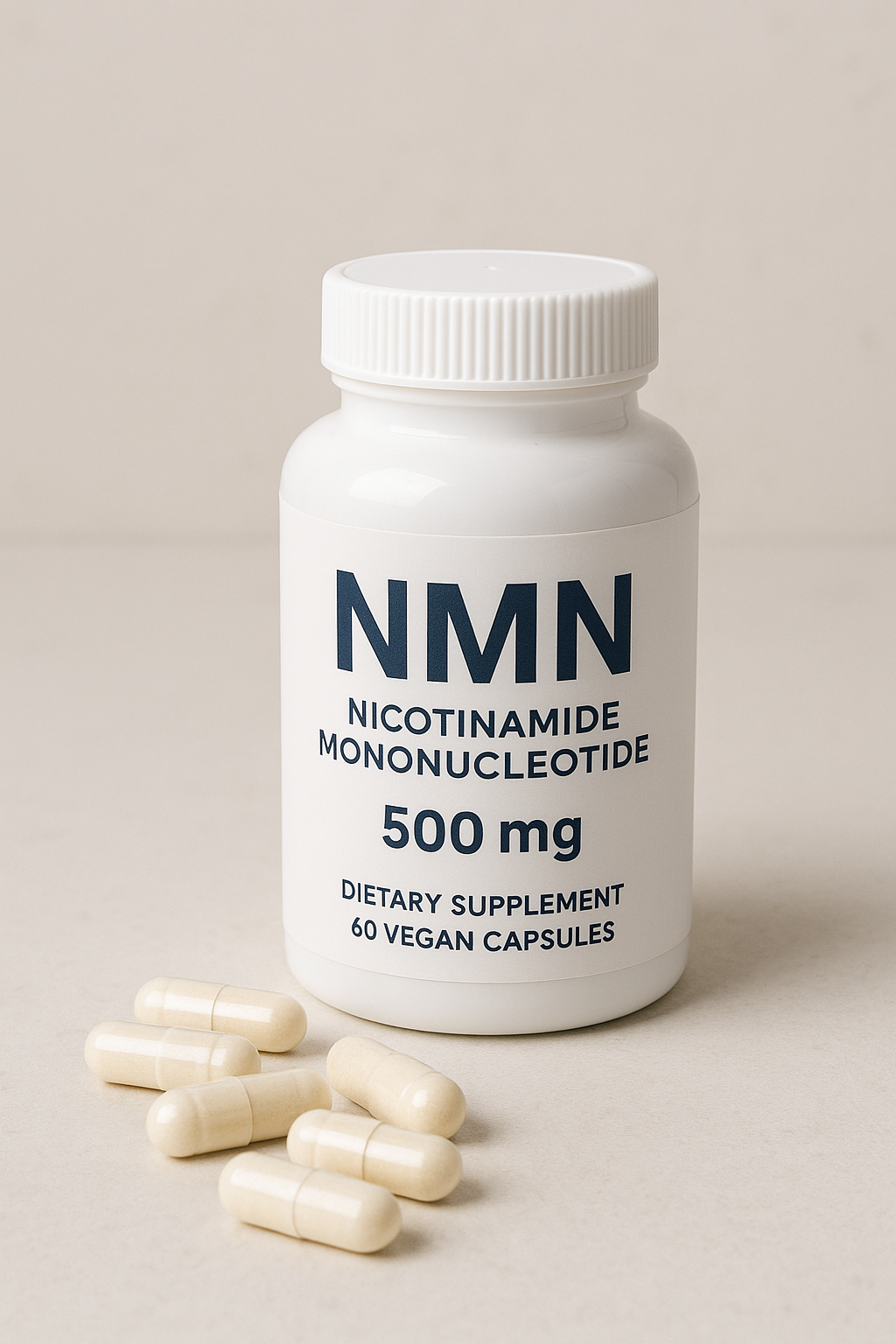
NMN is a naturally occurring molecule in your body. It’s what scientists call a precursor to NAD+ (nicotinamide adenine dinucleotide). That might sound complicated, but here’s the simple version:
- NAD+ is essential for life. Every single cell in your body relies on it.
- It helps convert food into energy you can actually use.
- It’s involved in DNA repair — crucial for long-term cellular health.
- It activates sirtuins, often nicknamed the “longevity proteins.”
NAD+ levels drop as we age. This decline is thought to contribute to fatigue, slower metabolism, and increased vulnerability to age-related conditions.
That’s where NMN comes in. It Give your body the raw material it needs to boost NAD+ production. Researchers hope that by restoring NAD+ levels, NMN could support healthier ageing, more energy, and better overall vitality.
Sounds impressive, right? But with big promises come big questions, and that’s where the myths start.
Myth 1: “NMN is untested and unsafe”
This myth usually pops up because NMN only became popular in the mainstream relatively recently. Some assume that means it hasn’t been studied.
The reality?
NMN has been studied for years — mostly in animal research, but increasingly in humans too.
- In one Japanese trial, healthy adults took up to 500 mg of NMN daily. The supplement was well tolerated, and no serious side effects were reported.
- Another study tested even higher doses — 1,200 mg per day — with similar findings. Participants didn’t experience anything alarming.
Most side effects reported so far are mild and rare, like slight digestive upset, headaches, or flushing. Now, does that mean NMN is completely risk-free? Not quite. We still need more long-term studies that follow people for years, not just weeks or months. But based on current evidence, NMN is safe for human use at the doses tested so far.
Think of it like seatbelts in the 1960s. They were tested, they worked, and they looked promising — but it took years of use and more research before they became standard. NMN is at that stage right now.
Myth 2: “High doses of NMN are dangerous”
There’s a natural fear that taking “too much” of any supplement could cause harm. Some assume NMN is no different.
What the research shows:
So far, clinical studies haven’t found high doses to be dangerous. Up to 1,200 mg a day has been tested in humans without major issues. That’s far more than most people would take.
But here’s the thing: just because higher doses are tolerated doesn’t mean they’re necessary. Your body has a limit to how much it can actually use. Once NAD+ levels are boosted, extra NMN won’t keep stacking up the benefits.
It’s like watering a plant. A moderate amount helps it thrive. Doubling the water doesn’t make it grow twice as fast — and too much could even cause problems. The same principle applies here.
So, NMN isn’t “dangerous” at higher doses, but moderation is wise. Many experts suggest starting with a lower daily dose, say 250–500 mg, and adjusting based on your response.
Myth 3: “NMN will reverse ageing instantly”

This one is everywhere — from supplement ads to viral social media claims. The idea that you can pop a capsule and suddenly look and feel twenty years younger is very tempting.
But let’s be honest:
NMN is not a magic bullet. Ageing is a complex process influenced by genetics, lifestyle, and environment. No supplement can instantly stop or reverse it.
What NMN may do is support healthier ageing. Studies in mice have shown improvements in endurance, metabolism, and insulin sensitivity. Early human research suggests it can boost NAD+ levels and improve muscle performance in older adults.
But these effects happen gradually. Think of NMN as a tool in your longevity toolbox — alongside exercise, a balanced diet, quality sleep, and stress management.
So, while NMN isn’t the “fountain of youth,” it could help you feel more energised and support better long-term health. Just don’t expect miracles overnight.
Myth 4: “You can get enough NMN naturally from food”
Here’s a myth that sounds appealing: why spend money on supplements when you can just eat more vegetables?
The truth:
Yes, NMN is present in foods like broccoli, cucumbers, edamame, and avocados. But the amounts are minuscule.
For example, one capsule of NMN might contain 250 mg. To get that much from broccoli alone, you’d need to eat several kilos — every single day. That doesn’t mean these foods aren’t valuable. They’re packed with other nutrients that support overall health. But when it comes to boosting NAD+ levels in a meaningful way, supplements are far more practical.
Myth 5: “All NMN supplements are the same”
If you’ve ever browsed online shops, you’ll know the NMN market is crowded. Some people assume all supplements are created equal.
Here’s the catch:
Not every brand lives up to its label. Studies of dietary supplements in general have shown that some products:
- Contain less active ingredient than claimed
- Include hidden fillers
- Haven’t been tested for purity
With NMN, this risk is real. That’s why experts recommend choosing supplements from companies that use third-party testing. These independent labs confirm the product actually contains what it says and is free from contaminants.
In short: picking a high-quality brand isn’t just marketing fluff. It’s about making sure you’re getting effective — and safe — NMN.
Myth 6: “NMN and NR are basically the same thing”
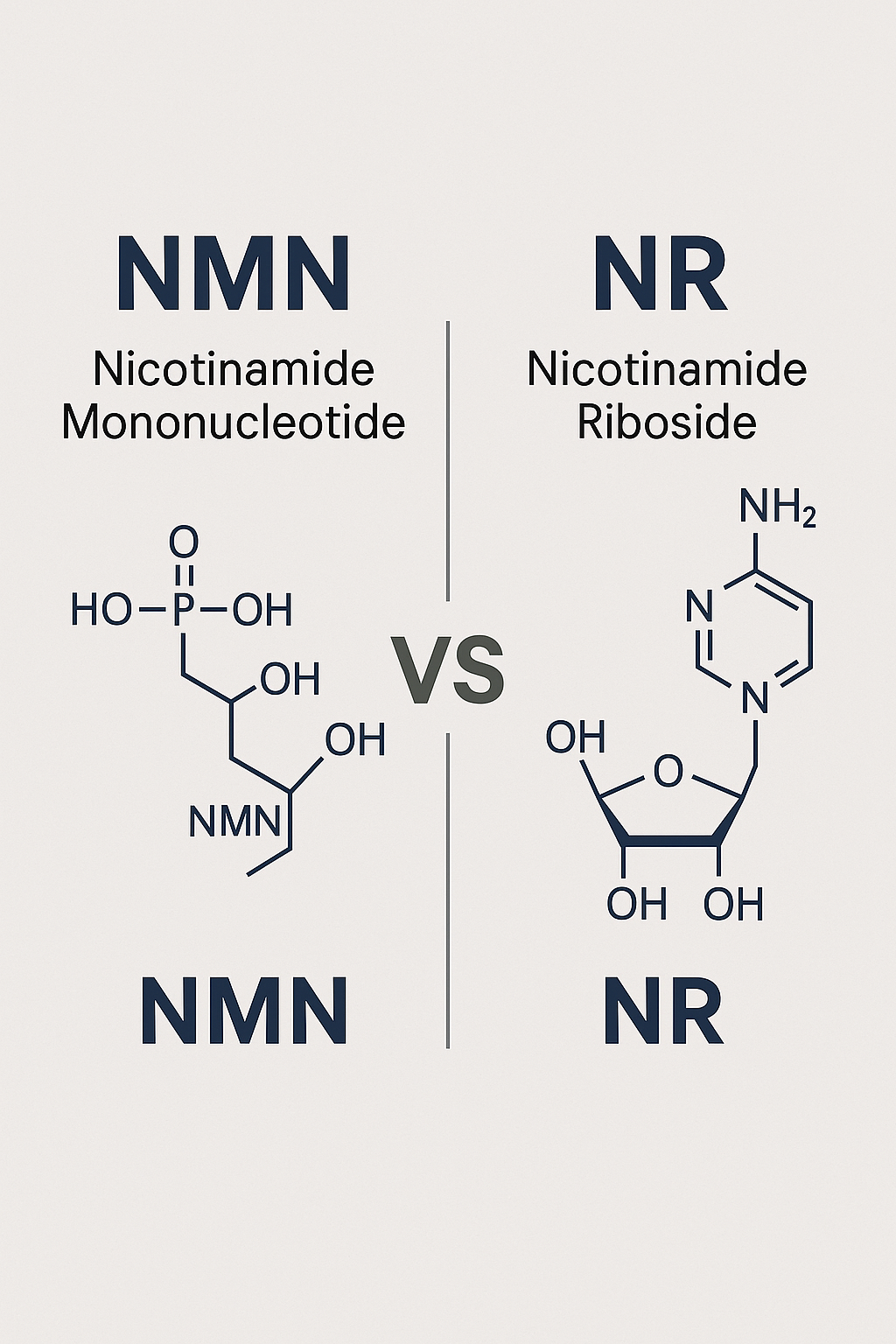
Another common point of confusion: NMN vs. NR (nicotinamide riboside). Both are NAD+ precursors, but they’re not identical.
Here’s how they differ:
- NR is converted into NMN, which then becomes NAD+.
- NMN is just one step away from NAD+, so it may work more directly.
Some researchers believe NMN has an advantage because it skips that extra step. Others argue both are effective in different contexts. The jury’s still out, but the important point is that they’re similar — not the same.
Myth 7: “If you take NMN, you don’t need lifestyle changes”
This myth might be the most dangerous. Some people view NMN as a shortcut — a way to ignore diet, exercise, or sleep because the supplement will “fix” everything.
The truth:
Supplements can’t replace healthy habits. NMN may help, but it works best when paired with a balanced lifestyle.
Think of it like having a great pair of running shoes. They’ll definitely improve your comfort and performance — but only if you actually get out and run. If you sit on the sofa all day, the shoes won’t do much.
The same goes for NMN. It’s not a replacement for the basics of good health. It’s a compliment.
Myth 8: “There’s no proof NMN works in humans”
Sceptics often argue that all the buzz is based only on animal research.
But that’s outdated.
Human trials, though still limited, are starting to roll out:
- A 2021 Japanese study showed NMN improved walking speed and muscle strength in older adults.
- Another trial demonstrated increased NAD+ levels in the blood after supplementation.
Are these studies small? Yes. Do we need more long-term research? Absolutely. But dismissing NMN as completely unproven in humans isn’t accurate.
Pulling It All Together
So, where does that leave us? Here’s the simple version:
- NMN is not a miracle cure, but it’s not snake oil either.
- It has a growing body of research behind it, both in animals and humans.
- Safety looks solid at studied doses, though we need more long-term data.
- Supplements can differ in quality, so choosing a reputable brand is essential.
- NMN works best as part of an overall healthy lifestyle, not a replacement for one.
The hype might make NMN sound too good to be true, but the science is promising enough to take seriously. If you’re curious, it’s worth keeping an eye on the research as it develops — and if you do decide to try NMN, go in with realistic expectations.
Final Thoughts
At the end of the day, supplements like NMN spark strong reactions because they tap into something deeply human: the desire to stay healthy, energised, and vibrant as we age. It’s natural to hope for shortcuts or worry about risks.
But when you cut through the myths, NMN is simply a tool — one with exciting potential, but not a miracle. Use it wisely, pair it with healthy habits, and follow the science as it evolves.
That way, you’re not just chasing hype — you’re making informed decisions for your long-term health.
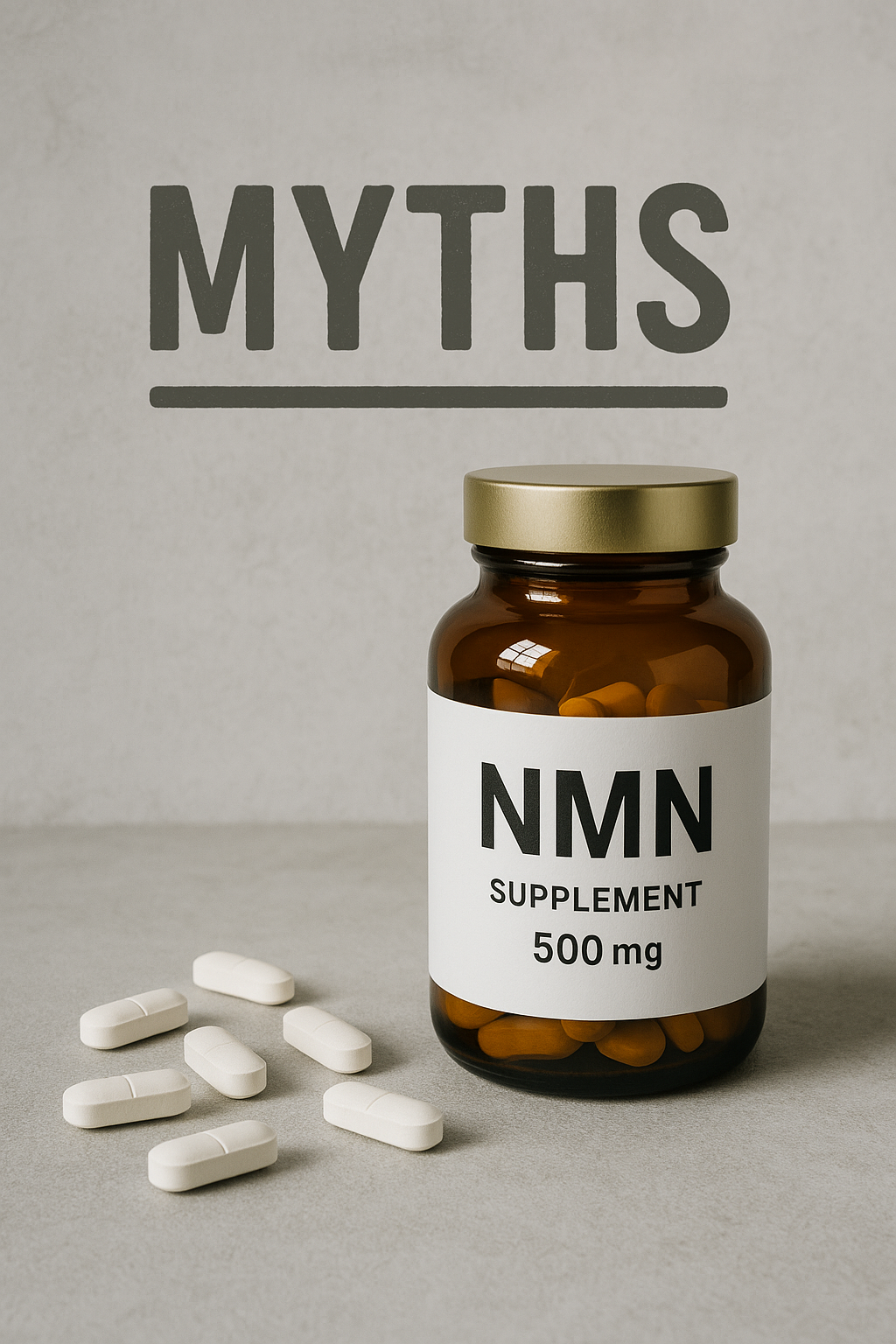
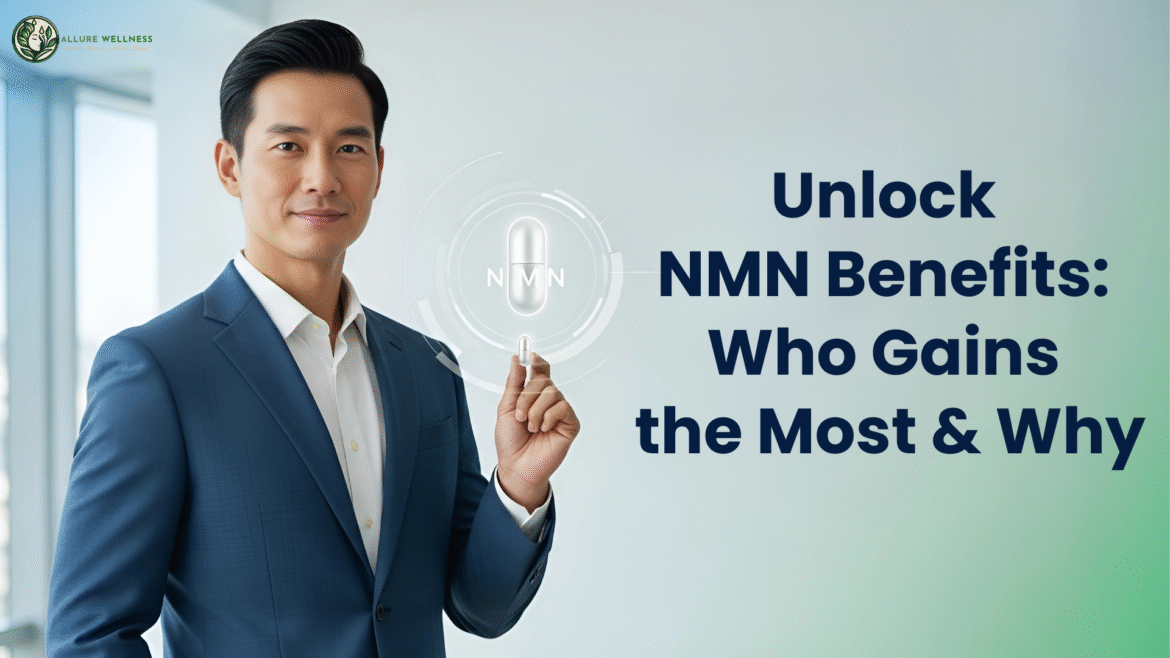
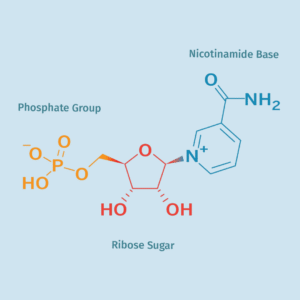


 So, who can benefit most from
So, who can benefit most from